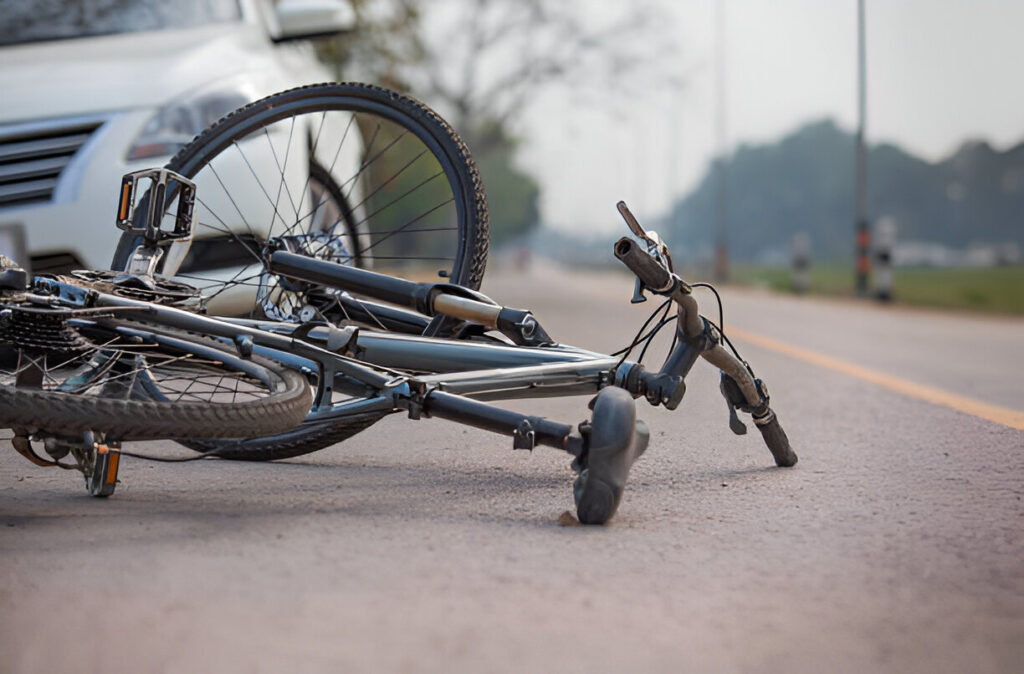Cycling has grown in popularity in recent years, offering a healthy, environmentally friendly, and efficient way to navigate both city streets and scenic routes. Unfortunately, as cycling grows in popularity, so does the number of cyclist-related incidents. When accidents occur, the consequences can be physically painful, emotionally distressing, and financially burdensome.
The process of obtaining compensation for a bicycle accident is often complex. In many circumstances, seemingly slight errors can severely damage or even invalidate a claim. Whether you’re a daily commuter or a weekend rider, knowing the most prevalent mistakes will help you preserve your rights and get the recompense you deserve.
Here are the top five mistakes cyclists make that can adversely affect their accident claims:
1- Failing to report the accident
Cyclists who sustain minor injuries may choose not to report the occurrence. They may be shaken but otherwise alright, or they may prefer to avoid the inconvenience of involving the police. However, ignoring to disclose the accident can lead to further issues.
Why it matters:
A police report is crucial evidence. It captures the specifics of the accident, such as the time, location, involved parties, and any witness comments. Without this official record, proving fault is far more difficult. If the driver later challenges your version of events, a lack of evidence may damage your claim.
What to do:
To report a collision, contact the police immediately, regardless of its severity. Ensure that your account is included in the report and obtain a copy for your records.
2- Delaying Medical Attention or Neglecting Immediate Medical Care
Another key mistake is not seeking medical care promptly. Some injuries, including concussions, internal injuries, soft tissue injuries, are not readily apparent. Cyclists often downplay their injuries or believe they will heal on their own.
Why it matters:
Insurance firms will frequently claim that a delay in obtaining medical treatment suggests that the injury was not severe or not accident-related. Gaps in treatment can raise concerns and provide the defense with an opportunity to dispute your claim.
What to do:
See a doctor or emergency room immediately after an accident. Be as detailed as possible in describing your symptoms and have all of it recorded. Adhere to all medical instructions and maintain records of visits, diagnoses, and treatment plans.
3- Failure to Collect Evidence at the Scene
In the confusion that follows a collision, it’s easy to overlook collecting evidence. Yet your actions—or lack thereof—at the scene can have a significant impact on the success of your claim.
Why it matters:
Pictures and witness statements can be strong evidence for your account of what happened. Without them, it could be your word against the driver’s word.
What to do:
If possible, take clear photos of your bike, the car, road conditions, traffic signs, injuries, and skid marks or debris. Try to obtain the contact details of any witnesses and request statements from them if they are cooperative. The more detailed your evidence is, the better your case will be.
4- Admitting Fault or Making Statements Without Legal Guidance
In moments of shock or politeness, cyclists may inadvertently say things that can be interpreted as admissions of guilt. Phrases like “I didn’t see you,” “It was partly my fault,” or even “I’m okay” can later be used to undermine your claim.
Why it matters:
Opposing lawyers and insurance adjusters can use these remarks to claim you were responsible or that your injuries are not as severe as alleged. Once documented, even casual remarks can be difficult to retract or explain away.
What to do:
Remain composed and restrict your interaction with the other side. Avoid discussing fault or accident details. Instead, wait to communicate with a legal professional before making any official statements to the police, insurers, or other involved parties.
5- Dealing with the Claim Alone Without Legal Counsel
Some cyclists believe they can navigate the claims process on their own, particularly if the facts appear straightforward. Yet, personal injury law is complex, and insurance companies are skilled at minimizing their payouts.
Why it matters:
Without legal representation, you could miss essential elements of your case or settle for much less than your entitlement. A skilled legal representative can evaluate the complete worth of your damages—medical bills, lost wages, pain and suffering, and future care requirements.
What to do:
Seek advice from a solicitor or legal expert who deals in personal injury and cycling accident cases. The majority provide free consultations and operate on a no-win, no-fee basis, so specialist advice is within reach even if money is a concern.
Final Thoughts
While an accident may occur instantaneously, its aftermath can be felt for months or even years. As a cyclist, being aware of these blunders could save you from losing your rights and set you up for a fair recovery. From documenting the scene to seeking professional legal guidance, each step taken after an accident counts. By sidestepping these five key missteps, you’re not only protecting your well-being—you’re protecting your future.
If you’ve been in a cycling accident, the National Accident Support Line is here to help. With a team experienced in handling personal injury claims, they can guide you through the process, safeguard your rights, and help you pursue the compensation you deserve.

